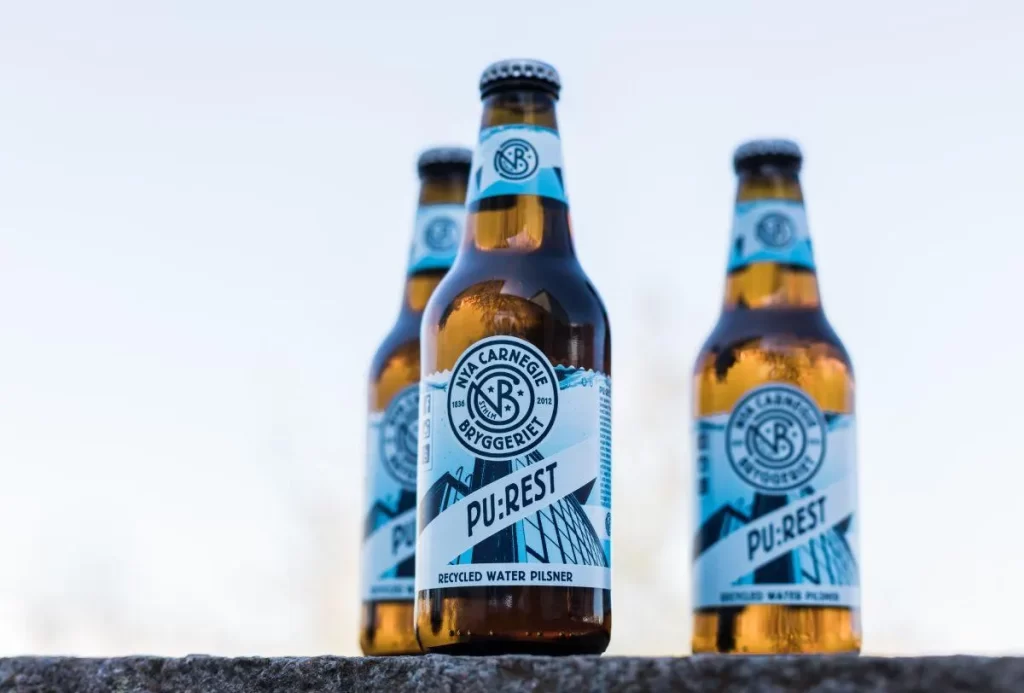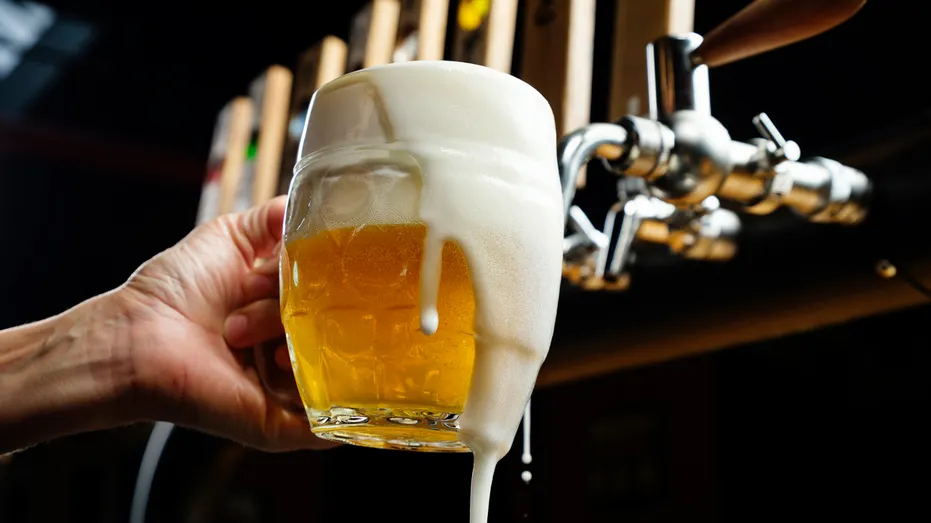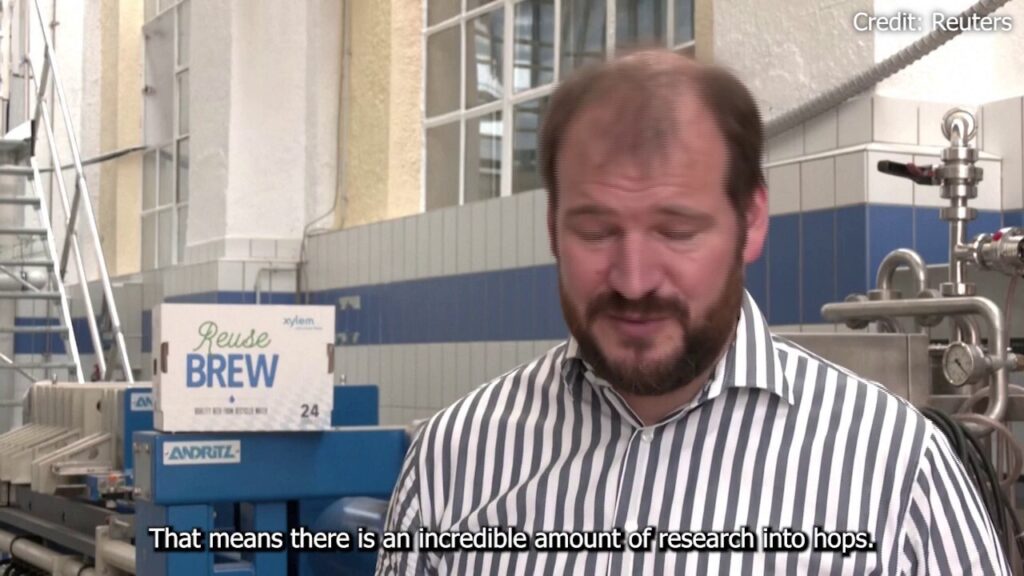In Weissenburg, Germany, an innovative beer known as Reuse Brew is turning heads, and taste buds, by using purified wastewater as its main ingredient. This groundbreaking approach to beer-making is being hailed for its sustainability and safety.
Reuse Brew is the result of a collaboration between Xylem, an American water technology company, the Technical University of Munich, and the city of Weissenburg. The initiative aims to demonstrate the potential of modern water treatment processes and their role in sustainable practices.

Uwe Huebner from Xylem Water Solutions emphasized the thorough purification process involved. “I can reassure you. You won’t find anything from the sewage treatment plant. We have really done very intensive purification,” he stated.
The wastewater undergoes four purification steps. Initially, a mechanical stage removes solid waste. This is followed by a biological stage where dissolved substances are turned into solids for removal. The chemical stage further purifies the water, and finally, ozonizing and filtering eliminate anthropogenic trace substances, which are derived from human activities like the use of cosmetics and pesticides.

After these stages, the water is treated even further to exceed drinking water quality standards, including partial demineralization. Huebner explained, “In the brewery, they have even partially hardened the water afterward to make a better beer.”
At a recent trade fair in Munich, attendees had the opportunity to taste the Reuse Brew. The feedback was overwhelmingly positive. Nadine Krogull, one of the tasters, remarked, “It’s delicious. You don’t realize that it’s wastewater. It’s really good, really good. It’s mild and tastes great.” Sebastian Beck added, “It’s surprisingly good. Because you’re doing something for the environment, we’re reusing water and I don’t notice any difference from a normal beer. It’s really good.”

While Reuse Brew is not yet available for purchase, its creators aim to showcase the possibilities of modern water treatment and the importance of water sustainability. Huebner highlighted the urgency of the issue, stating, “We are currently experiencing very frequent water shortages due to climate change. And we also see this in Germany where we have periods of drought, where we have periods – seasonal, regional – where we already have restrictions on consumption. One way to counteract this is to reuse treated wastewater.”
This innovative approach could pave the way for new sustainable practices in the beverage industry, turning a simple beer into a symbol of environmental responsibility.










